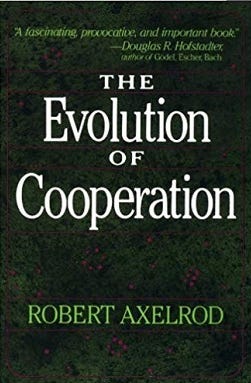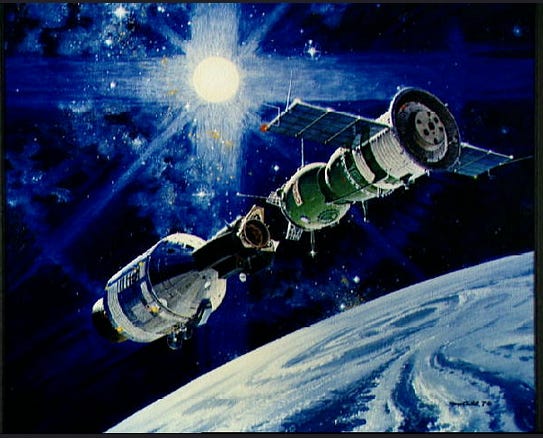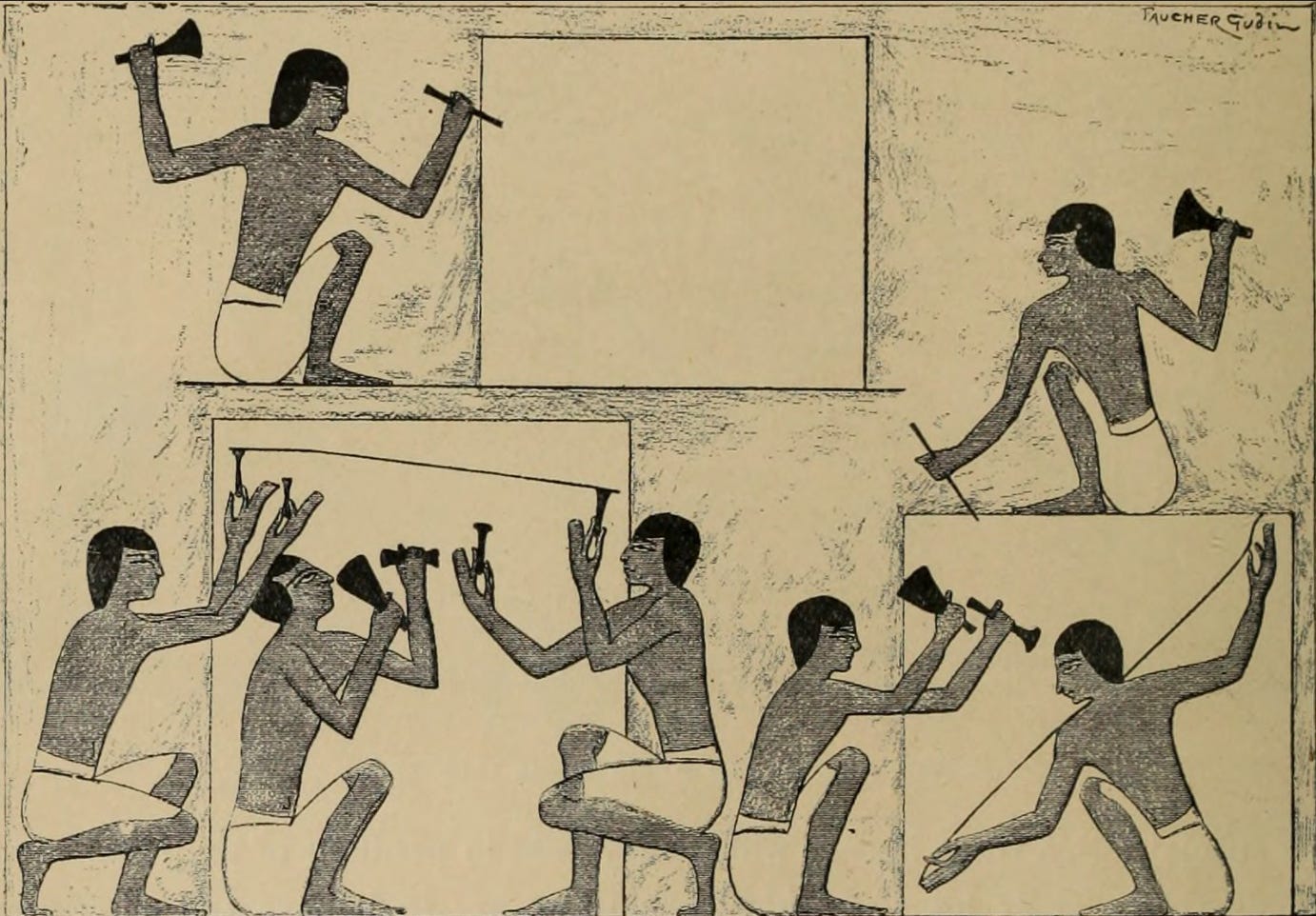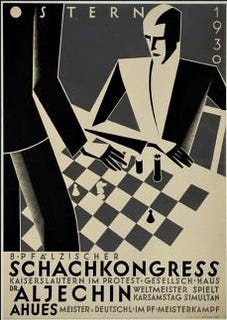Unpredictable Patterns #58: Cooperation, competition and conflict
On the virtues of conflict, compassionate competition, the risks of evolutionary drift in cooperation and why consensus may not be the best democratic tool
Dear reader,
Thanks for the responses to the last note, and the questions. One thing that stuck with me was the reader who noted that there is great value in exploring the role of a jury in trials, and how juries complement judges in different ways. There is a longer discussion there, but I agree that the idea of randomly chosen citizens asked to look at how rules should apply is powerful - and that the role of chance in law in general should be explored further. For a later issue! This week we are discussing cooperation, competition and conflict and noting that they are tightly connected concepts that help us see social systems more clearly. Hope you like it!
A wealth of antonyms?
Not all words have opposites, and the words that do not have clear opposites - or antonyms - are usually quite interesting. They often contain entire mental models for us to uncover if we look at them more closely. A simple example is the word ”knowledge”: while it would be natural to simple go with ”ignorance” as the antonym, that does not quite cover it - because recognized ignorance beats simply being wrong. So ”knowledge” exists in tension with ignorance and false belief, and often we need to get from false belief to ignorance to have any hope of reaching knowledge.
Another interesting word like this is cooperation. Here two possible opposites quickly present themselves: one is competition and the other is conflict. Between these three a vast social landscape of shifting behavioral patterns exist - and exploring that landscape provides us with an interesting set of tools to think about politics, tech and the future.
If we argue that these three are so closely related as to really be part of a larger hyper-concept, we should have a sense of what connects them. How should we understand the individual concepts and their relationships?
One dimension of this understanding is to realize that the objective shifts in the three processes: in cooperation we share an objective, in competition we also share the objective, but we want to reach it individually - in conflict we believe we can only reach the objective if we first eliminate the other party.
Competition and cooperation allow you to focus on the objective, and not waste resources on attacking other actors. Conflict is inherently much more expensive and leads to a situation where we end up risking the resources we need to reach the objective in eliminating the opponent.
Another dimension is provided by the paths available: in most cases the way a relationship state evolves is along the axis - cooperation - competition - conflict. It is very rare to go directly from cooperation to conflict or from conflict to cooperation. All efforts that aim at reconciliation into cooperation from conflict are likely to fail.
Further to this we can also note that the space between competition and cooperation is continuous, but the space between conflict and the two others is discrete: conflict is contagious and spreads from domain to domain - and even if that does not happen quickly, you will ultimately see that any relationship that has a conflict component over time sours into an all-out conflict.
Time also behaves differently in the three different states. In cooperation time slows down and becomes less expensive, since we are working together and there is no clear outside pressure on us to get things done (simplifying - in cases of natural emergencies this is not true, but those cases could be thought of as conflicts with nature). Competition makes time a scarce resource, and we need to calibrate all of our decisions against time. In conflict time is more complicated - since the objective is to eliminate the other party, the thing that matters most is the stability of their situation: if they are more stable than you then you are in a hurry. If they do not have a sustainable situation you can wait. One of the most interesting hypotheses around Reagan’s approach to the Cold War is that this is what he realized, and that continued spending into an ever more stable situation would break the Soviet economy. In conflict waiting can be powerful (as discussed in the note on waiting).
Evolution of conflict
A lot of studies have been devoted to understanding how cooperation evolves. The key research includes such classics as Robert Axelrod’s work on the prisoner’s dilemma - and this has been discussed elsewhere at length, so we will not repeat that. The core insights is that in repeated games we have an incentive to build a reputation, and so we cooperate - and one of the most powerful tactics is to start out cooperating, and then do whatever the other party did in the last round.

Cooperation evolves naturally for game-theoretic reasons, but it also is a part of our genetic rationality - we cooperate across families and tribes, and this cooperation has to do with genetic pressures. But even aside from this cooperation grows in the face of problems that can only be solved by groups - so the cooperative pressures are many.
What is more intriguing, however, is how conflict and competition evolve. It is probably a mistake to just say that competition and conflict are simple failure states of cooperation, and so just explain away the origins of competition and conflict. Both competition and conflict evolve, at least in part, from the scarcity of resources. Cooperation suggests that there is enough for everyone, and that we can share equally in our common success. That will not always be the case - and that is one reason we compete or end up in conflict.
Another intriguing connection between the concepts here is that, as outlined by Richard McElrath, the evolution of reputation in cooperation actually could very well lead to conflict: as reputation becomes a valuable good in cooperation, we suddenly have to defend it - and when challenged on our reputation it is rational to answer with conflict. This is the challenge of honor, and teaches us something interesting: cooperation creates the seeds of conflict.
The evolution of competition seems obvious, since evolution is essentially competition - but again it is worth thinking about scarcity here - and the fact that competition does not just evolve into conflict or cooperation - it can also devolve into drift if there is no scarcity at all and we do not need to make decisions.
One part of the market winner’s curse is that the successful company suddenly will have no competitors - and so will slow down, and perhaps even begin to drift. It is not entirely unlikely that the greatest cost for a monopolist is the cost of organizational drift, where the company does things but has no way of knowing if they increase or decrease fitness until the aggregated cost of the actions becomes clear.
There is no competition, and no-one with cooperate with - and any risk of conflict.
In order to see and structure the world we need one of the three: we see clearly only in cooperation, competition or conflict - when we are divorced from any kind of relationship we become organizationally blind.
When we dig deeper into the evolution of cooperation overall, we find another interesting concept, and that is compassion. As researchers are looking into how we evolved to cooperate, they are increasingly finding that it is far from unlikely that we have evolved affective states that help cooperation - matched by feelings that lead to conflict.
This is important, since so much of our analysis of cooperation, competition and conflict is based on the assumption of rationality. While abandoning the idea of rationality is the wrong way to go, we probably do better in understanding the world if we allow for the existence of affective rationality, or emotional rationality, and try to understand those evolved affective states that underlie our social behaviors.
Compassion enables cooperation, and can exist even in competition - but is reversed into contempt in conflict. In addition, then, to understanding how cooperation, competition and conflict relate to each-other we also need to understand that they operate within the logic of compassion and contempt. (Yes, that is a lot of Cs - but that is language for you, it contains secret patterns…:-).
Compassion or sympathy may be one of the most overlooked social factors in understanding how we live together - and it is likely to be an evolved affective state. Darwin noted so early on (quoted from Goetz JL, Keltner D, Simon-Thomas E. Compassion: an evolutionary analysis and empirical review. /Psychol Bull/. 2010;136(3):351-374. doi:10.1037/a0018807 ):
In stark contrast, Darwin viewed “sympathy” as the strongest of humans’ evolved “instincts.” He made this assertion within the following analysis in /Descent of Man, and Selection in Relation to Sex/, “sympathy will have been increased through natural selection; for those communities, which included the greatest number of the most sympathetic members, would flourish best, and rear the greatest number of offspring” ( [Darwin, 1871](https://www.ncbi.nlm.nih.gov/pmc/articles/PMC2864937/#R49) , p. 130).
Darwin’s view has been hotly debated, but increasingly the view that affective states really matter and logically would provide fitness advantages is gaining acceptance, and is worth paying attention to.
Between competition and conflict in geopolitics
Let’s think big, really big. How does the tension between cooperation, competition and conflict play out in the geopolitical sphere? Think about the Soviet Union and the US and the Cold War: it provides us with a great example of a geopolitical relationship that hovered on the brink between competition and conflict. And it also shows us something interesting: geopolitical competition can be a force for accelerating learning, globally - as in the case with the space race. But when it shifts towards conflict we get the nuclear arms race - a much more destructive and dangerous process.
The, perhaps, surprising conclusion is that we might want to geopolitical competition, but not geopolitical conflict - and when we look at the situation between the US and China we have to figure out where on the balance between the two the conflict is now, and where it is trending. We may also want to recognize that the best geopolitical agenda is one that strengthens the competition between the countries without inflaming the conflict.
Ideally we could get a space race, without the ensuing nuclear arms race - even if some may argue that what we have today is more like the latter than the former. But if this is what we believe we also get a completely different solution space if we look at the path between conflict and competition, rather than trying to get all the way to cooperation.
A world that recognizes the competition, but deters the conflict is much safer than a world that seeks to force cooperation on parties close to conflict.

One thought here that it might have been a mistake at the end of the Soviet Union to not seek points of competition out, but claim that from now on everyone would cooperate. A stable state of competition would actually have been much more natural as an intermediate state - but that is Monday morning quarterbacking.
This view also seems an argument for diplomatic engagement to de-escalate conflict into competition, and that is complicated. In many ways this makes game-theoretic sense, but since conflict cuts of arenas of dialogue it is also tremendously hard. To de-escalation conflict requires careful work and often orthogonal approaches - trade has been identified as one of the perhaps most powerful mechanisms for such de-escalation, but it is a slow path.
Here, too, the question of compassion and contempt enters into our analysis - the dominant affective state between nations is a hard thing to assess, but we can at least have a sense, and perhaps work on shifting towards compassion from contempt where possible.
The politics of cooperation and competition
So, is democracy cooperation, competition or conflict? This is not as easy a question as we may think. There are two major views here that need to be explored closer: the first is that democracy is cooperation and should seek consensus, the second is that democracy is compassionate competition (not to be confused with compassionate conservatism) and that we should seek out that competitive stance to advance.
The dominant view is likely the former - that democracy is cooperative and seeks and should seek consensus. But is that the best way to secure a robust and resilient society? Should we seek compassionate competition? William Connelly and other political scientists have argued that we undervalue the idea of an agonistic democracy - in which interests clearly compete and that competition is made visible to all. One risk that they see with a cooperative democracy seeking consensus is that its ends up completely gridlocked.
What does this then mean for our current debate about polarization? It would seem to suggest that if polarization is conflict, then we are in trouble: conflict operates under the logic of contempt and is inherently corrosive to any social fabric. But if polarization means the articulation of competitive interests, then we should be less worried.

In reality it is a little of both, but trending towards an increasing conflict. And then, again, maybe the path to a better state is not to insist on consensus and cooperation, but seek a way to return to competition between clearly recognized interests?
What would this mean, in practice?
One possibility for, say, a company that is caught in the increasing polarized debate is to start by articulating the competing interests that are at play and admit that these are incompatible. This reminds us of the idea of ”reasonable disagreements” - where the values at stake are clearly enunciated and reviewed.
There is a sense in which an individual company is necessarily in competition with society: it picks a few of the many objectives society shares and sets out to prioritize those and that prioritization could be construed as competitive.
There has always been a fundamental competition in society between the public and the private, and that competition is a key reason for the progress that we all enjoy.
But when that competition shifts into conflict between the public and the private, we all end up losers - since society then ends up in conflict with itself. A society that is competition with its companies, a society where the public and private spheres are continuously renegotiated from reasonable disagreements, is a strong and flourishing society.
A society that is in conflict with its companies, and has lost sight of the shared objectives that the private and public sector have, is a society that is ultimately doomed to fail. The way back is not through cooperation - indeed, we have a name for the failure state that we end up in when companies and societies cooperate: corporatism or corporatocracy - but perhaps through open competition.
The virtues of conflict
It seems clear in looking at our triangle of concepts that cooperation and competitions come off as healthy traits, and conflict emerges as a degenerative and diseased state to be in - but is that true? Besides the old saw that conflict can unite a diverse sets of interests, is there any value to conflict?
Conflict as understood here is a shift in our objectives from achieving something specific to eliminating the opponent. There are nuances to this that are important to understand. The first is that there will be cases of true conflict where the existence of our opponent makes it impossible for us to reach our objectives, and so we have to remove them in order to achieve what we set out to achieve.
Chess is like this - there can be only one winner - and so chess is not cooperation, nor is it competition - it is a conflict. But luckily few real cases are like this, and absolute conflict is most often found in games and sports. Zero-sum games are not as common as we may think.

But conflict plays a much more interesting role in our triangle - as a deterrent. This is the Hobbesian point (which he sort of stole from the Plato’s Laws) that in our natural state we would be engaged in a terrible war of everyone against everyone, and so that is why we need to find ways to cooperate.
Hobbes’ suggestion is in fact that it is under the shadow of conflict that cooperation appears, and that is what ultimately - then - also allows us to explore the boundary lands of competition.
This may be a bleak idea - but the existence and threat of conflict, and of all out conflict, creates the background against which we reason our way through competition and cooperation.
The virtue, then, of conflict is exactly the mindless and horrifying force that it unleashes, and the cost of getting stuck in the logic of mutual contempt. It is the threat of conflict that opens the space of shared objectives, in a sense.
In addition to that somewhat grandiose observation, there are also virtues to smaller, directed and surgical conflicts. The most important of which is to delineate the boundaries of competition. In competing with each other we sometimes need to set those boundaries through minor conflicts, but then we also need to be wary of not getting caught in the downward spiral it creates.
An interesting, public, example was how Microsoft and Google saw competition descend into conflict between the two companies, and consciously, painstakingly, had to return to competition through bonafide peace talks. Another, more current example, is the tensions between Apple and Facebook - that seem at risk to accelerate into conflict rather than competition through both parties refusing to seek any common ground.
Conflict is often self-destructive - as evidenced by the representative from a large telco who once said in a trade association that they did not care if a piece of regulation harmed them, as long as it harmed the GAFA more — a clear conflict mentality.
It must, however, be admitted that conflicts have great narrative allure: they help a company build its own story, and admittedly a story without conflict is useless. But the best stories are not filled with conflicts with other people as people, but conflicts between interests represented by others. In fact, it may be more accurate to talk about competition in narratives for companies and organizations, and to really dig into what the competing interests at play are.
Seek space races, not nuclear arms races in your story.
So what
Cooperation, competition and conflict are fundamental concepts in structuring how we understand the landscape we operate in. Recognizing where we compete and where we are in conflict is the first step to assessing responses we can make.
Often when we seek cooperation, when what we really should seek is (compassionate) competition, and we should avoid conflict as often as we can.
This also factors into how we understand politics and geopolitics; the existence of competition is healthy, the descent into conflict is dangerous - and the path back is not to consensus and cooperation, but really to clearly articulated competing interests.
Mapping cooperators, competitors and conflicts is a great exercise for any company, and figuring out where competition is heading is also key to understand where you will end up with more serious problems. When in conflict it is often useful to figure out a path to competition rather than to seek cooperation - and strong and vigorous competitors is a great way to ensure that you do not end up in evolutionary drift.
In a sense it is between these three points that a company negotiates its success, and long term survival.
Thank you for reading!
Nicklas



I love Axelrod! And in hindsight it's a useful way to understand how people in large organizations interact (eg succeed or fail to cooperate) and how that changes depending on how much iteration is expected.